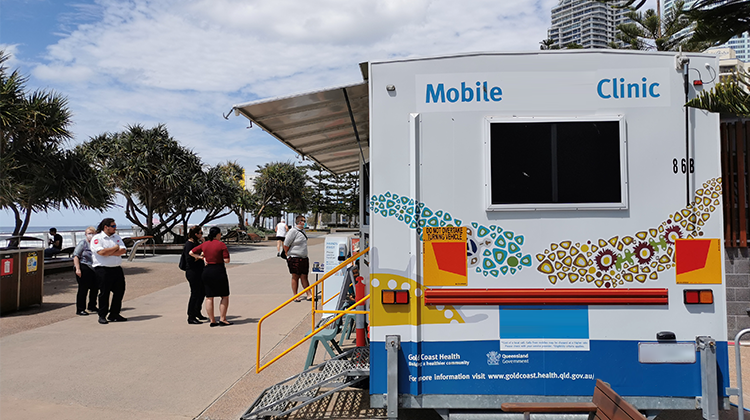A major task of the U.S. health system is how to provide high-value care that is equitably accessible for the general populace. Health care is more costly in the U.S. than in any other country. As a result, nearly half of all Americans have difficulty paying for medical care and owe debt due to medical bills. People who are low-income, uninsured, Black, or Hispanic are disproportionately affected. Affordability barriers to timely, high-quality care is a major factor contributing to poor health outcomes on a population level; we fall behind other high-income countries in many key health measures, such as life expectancy, preventable injuries and death, chronic disease burden, suicides, and maternal morbidity and mortality. The COVID-19 pandemic has made it even more difficult for our health system to be effective and equitable. While health spending continues to grow since the pandemic, health disparities have widened, and death and mortality rates have increased.
In light of these ongoing challenges, mobile health clinics offer a unique solution to improving health equity and care quality.
Health care on wheels
Mobile clinics improve access to health care in many communities by reducing transportation and geographic barriers. They are often the only available option for patients in areas with limited medical infrastructure, providers, and resources. They can also reach specific vulnerable and marginalized populations, such as migrants, uninsured and unhoused people, and pregnant women and children. Mobile clinics can also easily adapt to meet the changing needs of the communities they serve. For example, they played a key role in many municipal efforts to provide COVID-19 testing and vaccines for hard-hit neighborhoods with poor medical access.
Mobile clinics are also an effective way to improve health outcomes and reduce health care costs. Numerous articles in the literature have cited that mobile clinics are more efficient at helping underserved communities access preventive care, manage chronic disease, and pursue healthier living. One early report found that services provided by The Family Van in Boston prevented early disability and death from disease as well as avoidable emergency visits, which was evaluated to have a return on investment of $36 for every dollar invested into the program during the study period. A more recent study confirmed that mobile clinics overall delivered primary care and preventative services at a lower cost per patient than other federally funded health centers.
The Mobile Health Map network has tracked the aggregate impact of more than 1,100 registered mobile clinics across the country. Altogether, these clinics tend to reach neighborhoods with high social vulnerability and disease burden and serve a racially diverse, disproportionately uninsured patient population. To date, they have contributed to more than 3,200 life years saved and more than $235 million returned on investment. Mobile clinics thus play an important role in the movement toward equitable, value-based care by delivering a wide range of services that benefit more patients at a lower cost.
Maternal health and mobile clinics
One specific area that has benefited from mobile health clinics is in the care for pregnant and postpartum women.
The U.S. lags far behind peer countries in maternal morbidity and mortality, with Black and Indigenous women having a two to three times higher risk of death due to pregnancy than their white counterparts. These are consequences of social and economic factors rooted in racism and inequity: women of color and low-income communities have greater barriers to getting insurance, reproductive services, and prenatal and postpartum care. Expecting and new mothers who are underinsured or live in care deserts often do not receive necessary screenings or treatments until it is too late.
Mobile maternal clinics offer an on-the-ground solution that brings free reproductive services directly to those who need it most. They can improve health care access for pregnant women and mothers from marginalized communities, such as immigrants, the unhoused, and those with substance use disorders. These mobile units are usually staffed by midwives and community health workers who provide pregnancy tests, prenatal screenings, postpartum care, and referrals to social services. They often partner with community organizations and hospitals to reach high-risk patients and connect them with obstetricians and labor units.
Most importantly, these programs have shown success. An early study came from the Women’s Health Van, which operated near low-income neighborhoods in Northern California. The van was able to initiate prenatal care earlier in pregnancy than other community health clinics. MOMmobile, serving mostly Hispanic immigrants in Miami, showed similar findings as well as better birth outcomes in their patients, such as fewer preterm and low birthweight births. Mobile maternal clinics have also provided services to address other social determinants of health. In Southeast D.C., the Mama and Baby Bus helps patients get healthy groceries and sign up for health insurance. Mobile clinics are a proven method to offer many tools and resources to improve health outcomes and quality of life for expecting moms and their newborns.
Mobile clinics are also increasingly providing care during the critical weeks after birth. Currently, up to 40 percent of women in the U.S. do not attend a postpartum visit. To address this problem, Boston Medical Center created Curbside Care for Moms and Babies, which was relaunched earlier this year in partnership with the Boston Celtics Shamrock Foundation. The program recruits mother-infant pairs from the newborn nursery and delivers follow-up care right to their doorstep. Over multiple visits, an interdisciplinary team (consisting of a midwife, pediatric nurse practitioner, lactation consultant, and social needs navigator) offers a wide range of services for both mom and baby. These include breastfeeding support, newborn growth assessment, postpartum depression screening, birth control counseling, and social service coordination. Curbside Care’s unique dyadic model means that new mothers don’t have to prioritize their baby’s health over their own or worry about transportation and childcare challenges to make their newborn visits.
Improving care for pregnant women and postpartum families, especially among minorities and the underinsured, should be a national priority. Mobile health clinics have great potential in fulfilling this need to prevent unnecessary harm and death in our most vulnerable patients.
About the author
 |
William Zhuo-Ming Li is a third-year medical student at Harvard Medical School who is passionate about pediatrics, newborn medicine, and community-engaged health care. He also loves to cook, cat-sit, longboard, and play board games. |
**Feature photo obtained with a standard license on Shutterstock.
Interested in other articles like this? Subscribe to our newsletter.
Interested in contributing to Perspectives in Primary Care? Review our submission guidelines
- Share
-
Permalink


